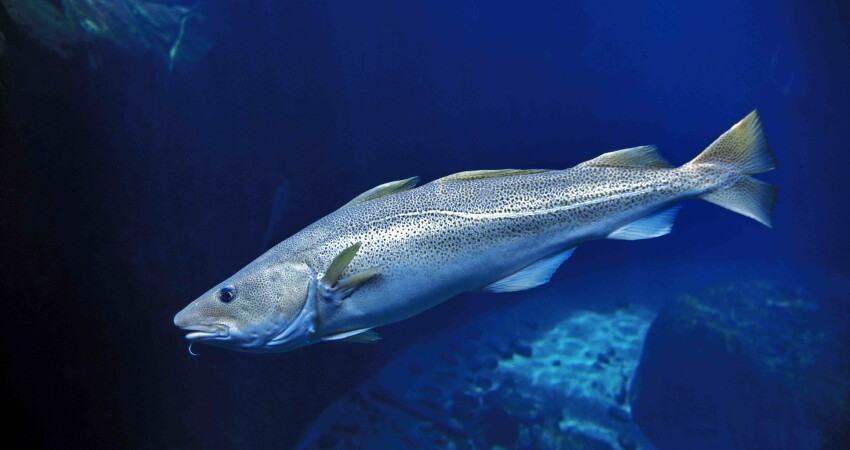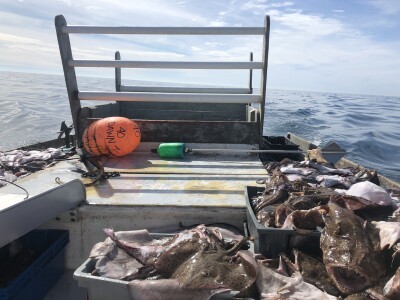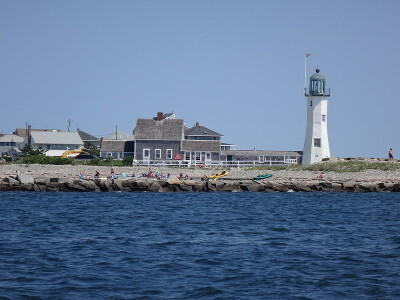Scientists claim that Atlantic cod stocks are severely depleted in the Gulf of Maine, but on the other hand, fishermen look at the marine environment and see a thriving species that will be shipped and eaten around the world for years to come.
The question of how fishermen and marine scientists employed by government agencies can view cod stocks so differently has left Micah Dean, a Marine biologist with the Mass. Division of Marine Fisheries (MDMF) puzzled for years. According to Northeastern Global News, Dean believed he discovered the answer when he was a doctoral student at Northeastern University.
He claimed that fishermen and scientists view the ocean depths with such different lenses that they are not viewing the same things.
“We did a telephone survey, and we asked commercial fishermen, over the last 10 years, do you think the cod population in the Gulf of Maine has gone down a lot, gone down a little, stayed the same, gone up a little, or gone up a lot,” Dean shared.
The most common response they received from fishermen was that the population had increased.
According to the article from Northeastern Dean stated, government scientists say that the Gulf of Maine cod stock has declined about 80% from 2005 to 2017 and is less than 5% of its target level, making it “severely depleted.”
“I’ve tried to translate between these two perspectives and identify an explanation for how this came to be,” shared Dean, whose survey of approximately 100 fishermen occurred in 2018. “We’re really not close at all. Everyone’s got their own reality,”
Dean shared in his study while a student at Northeastern that divergent perspectives may be an unavoidable consequence of fishery management, yet acknowledging the underlying mechanisms might help avoid future conflict.
He explained further that commercial and recreational ground fishermen could not trawl in spawning sites for cod, where they could very well see the older population of the species had plummeted. Because fishermen do not harvest in those areas, they are blind to the adult cod in the spawning grounds.
“They can’t see the lack of adult cod. It alters their perspective on the population,” Dean shared.
“Most of the spawning grounds are gone. We really recognize the necessity of protecting what remains.”
He also said that fishermen don’t see the decline in juvenile codfish because of the 6.5-inch mesh openings in their nets allowing these fish to escape. And scientists using the quarter-inch or two-inch mesh net will clearly see the loss of juveniles.
What fishermen are catching and what scientists are surveying create two very different perspectives.
“So much of the angst in the fishing industry is that fishermen don’t believe the answers they are being told,” Dean told Northeastern.
“To manage a resource like this, you have to have some baseline agreements on the status of the condition so we can agree on what sort of measures need to be taken to improve the condition.”
Surveys that took place from 2003 to 2007 and then from 2016 to 2019 were on commercial fishing vessels due to Dean and other state fishery officials collaborating with fishermen for bottom trawl surveys. These surveys were also conducted for a longer amount of time than previous ones- about 10 months out of the year.
“We had commercial captains and crew operating the boat,” he said. The thought behind this was that “fishermen will believe what other fishermen catch.”
What they found in these surveys matched more previous government surveys. However, they got a much more intense view of the cod populations.
Dean told the press, “We found basically that the federal stock assessment, the scientific perspective was generally accurate, and that the population had declined significantly.” He also used the material from his thesis study and historical data to make an online story map about the sorry condition of the Atlantic cod species for the MDMF.
To learn more about fishermen’s views, read the Northeastern article.







